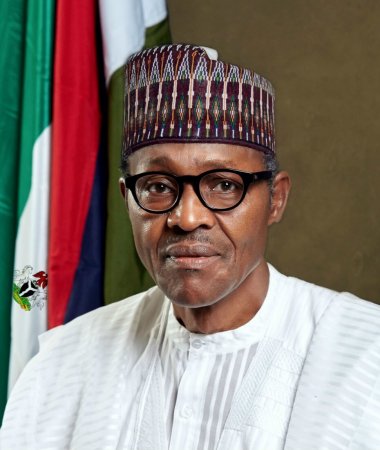A
abujagirl
Guest
The Economist has published a fresh piece on President Muhammadu Buhari and his economic policies.

“GIVE me lucky generals,” Napoleon is supposed to have said, preferring them to talented ones. Muhammadu Buhari, a former general, has not had much luck when it comes to the oil price. Between 1983 and 1985 he was Nigeria’s military ruler. Just before he took over, oil prices began a lengthy collapse; the country’s export earnings fell by more than half. The economy went into a deep recession and Mr Buhari, unable to cope, was overthrown in a coup.
Now he is president again. (He won a fair election last year against a woeful opponent; The Economist endorsed him.) And once again, oil prices have slumped, from $64 a barrel on the day he was sworn in to $32 eight months later. Growth probably fell by half in 2015, from 6.3% to little more than 3% (see article). Oil accounts for 70% of the government’s revenues and 95% of export earnings. The government deficit will widen this year to about 3.5% of GDP. The currency, the naira, is under pressure. The central bank insists on an exchange rate of 197-199 naira to the dollar. On the black market, dollars sell for 300 naira or more.
Instead of letting the naira depreciate to reflect the country’s loss of purchasing power, Mr Buhari’s government is trying to keep it aloft. The central bank has restricted the supply of dollars and banned the import of a long list of goods, from shovels and rice to toothpicks. It hopes that this will maintain reserves and stimulate domestic production.
When the currency is devalued, all imports become more expensive. But under Mr Buhari’s system the restrictions on imports are by government fiat. Factory bosses complain they cannot import raw materials such as chemicals and fret that, if this continues, they may have to shut down. Many have turned to the black market to obtain dollars, and are doubtless smuggling in some of the goods that have been banned.
Click here to read more
SOURCE: THE ECONOMIST

“GIVE me lucky generals,” Napoleon is supposed to have said, preferring them to talented ones. Muhammadu Buhari, a former general, has not had much luck when it comes to the oil price. Between 1983 and 1985 he was Nigeria’s military ruler. Just before he took over, oil prices began a lengthy collapse; the country’s export earnings fell by more than half. The economy went into a deep recession and Mr Buhari, unable to cope, was overthrown in a coup.
Now he is president again. (He won a fair election last year against a woeful opponent; The Economist endorsed him.) And once again, oil prices have slumped, from $64 a barrel on the day he was sworn in to $32 eight months later. Growth probably fell by half in 2015, from 6.3% to little more than 3% (see article). Oil accounts for 70% of the government’s revenues and 95% of export earnings. The government deficit will widen this year to about 3.5% of GDP. The currency, the naira, is under pressure. The central bank insists on an exchange rate of 197-199 naira to the dollar. On the black market, dollars sell for 300 naira or more.
Instead of letting the naira depreciate to reflect the country’s loss of purchasing power, Mr Buhari’s government is trying to keep it aloft. The central bank has restricted the supply of dollars and banned the import of a long list of goods, from shovels and rice to toothpicks. It hopes that this will maintain reserves and stimulate domestic production.
When the currency is devalued, all imports become more expensive. But under Mr Buhari’s system the restrictions on imports are by government fiat. Factory bosses complain they cannot import raw materials such as chemicals and fret that, if this continues, they may have to shut down. Many have turned to the black market to obtain dollars, and are doubtless smuggling in some of the goods that have been banned.
Click here to read more
SOURCE: THE ECONOMIST

